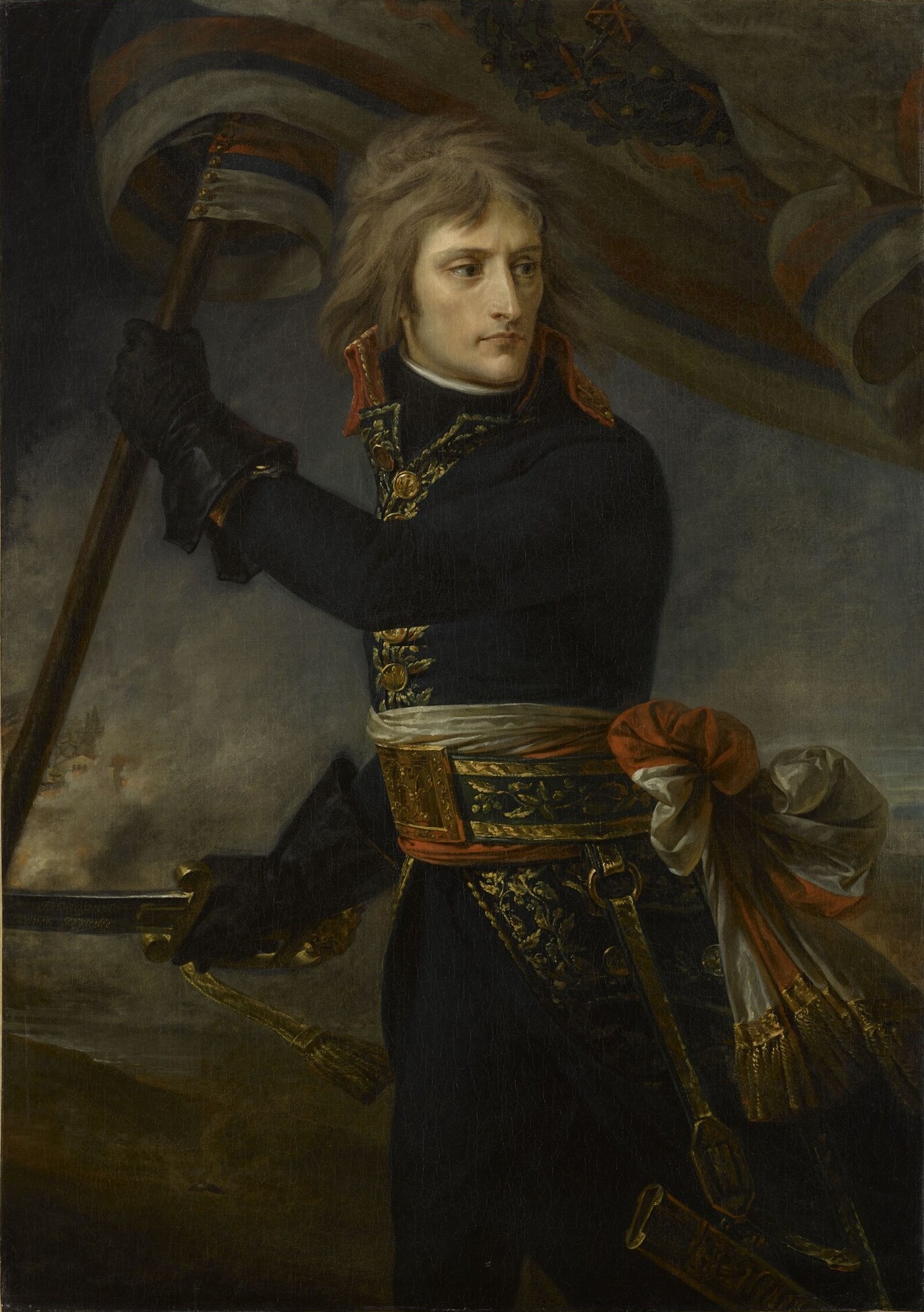In case you hadn't read the previous entires, at the point in history when Joan of Arc was born, France was in a tremendous amount of trouble. The Hundred Years' War was drawing to a close with Britain controlling much of northern France and tightening the noose around the southern half. Orleans was one of the last bastions of French power, and if that city were to fall it would have been quite likely the food in France would be changing from baguettes to crumpets.
 |
| Joan of Arc, hardly concerned with her terrible case of helmet-hair. |
Joan began to see visions of saints - Catherine, Margaret and Michael, specifically - who told her she was the only one able to drive the English out of French territory. The dreams must have been convincing as she actually bothered to act on them; I feel with most dreams, you wake up and forget the majority of it and wonder what the heck garden gnomes had to do with any of it. Believing them to be true, she tried to manage safe passage to the soon-to-be French king, but was initially denied. What finally won the army over to let her see the dauphin was an accurate prediction on a British assault. Likely fearing they have nothing to lose if they brought her over, and their eternal souls at stake if they were to deny the will of God if the girl was telling the truth, Joan was on her way to the court of the dauphin.
Somehow she managed to impress the French court. The government gave her armour, and her horse, sword and banner came through donations provided to her through other means. The reason why the French went along with this seemingly asinine plan was they simply may have exhausted all of their non-ridiculous options. With Orleans under siege and pretty much everything going to crap around them, they must have been in the mood for a long-shot.
When appearing on the battlefield, she quickly changed the course of the siege. France had been defending for an exceptionally long time, pretty well allowing the British to step in and begin to attack the city. In all fairness, Orleans was exceptionally well defended, and would have proved to be an incredibly difficult city to overtake. However, defence was not in the cards for Joan's plan, and she decided to take the fight to the British. She hit the outlying areas and small encampments of British that were surrounding the city, effectively stopping the siege itself after only a few days time. The beginning stages of the military campaign of Joan of Arc were off to a resoundingly strong start.
 |
| Joan of Arc bringing the dauphin to Reims. She's... in the centre I think. |
As for the actual military leadership of Joan of Arc? Well, it's a little up for debate: she never actually had direct command, and she played more of an advisor role more than anything else. She was likely just a standard bearer, carrying around a sword but not one to really charge into battle and lay waste to a bunch of snarling Brits. That being said, she wasn't entirely out of the fighting either; she took an arrow around the neck and shoulder but returned to the fight shortly after. Later she would take another wound, this one a crossbow bolt to the leg, but power through it once again.
 |
| Her capture while trying to pass the dreaded Burgundian wallpapered pass. |
This would be the last great victory for Joan of Arc, as she was captured by the Burgundians (one half of the French civil war that sided with the British) in a battle sometime after. In spite of rescue and escape attempts (she tried jumping seventy feet from the tower she was kept in) she was put on trial for heresy. Now, it sounds a little silly to say she didn't get a fair trial - I mean, she's about as far as friendly to the British as she could be - but the whole thing is actually kind of a mess. She was tried for heresy - that means it was a trial that was taken care of by the church, and should have no secular interference. However, because of the degree of importance in British affairs, there were threats-a-plenty, tampering of evidence, and the jury was all English (presumedly put in place by a medieval-era Johnnie Cochran). Obviously, she was convicted and burned at the stake, showing that if you claim to hear the voices of saints and be under orders of God, you best be able to prove it.
She was later deemed innocent after a retrial (her ashes ecstatic at the verdict) and went on to become a saint. Now, France has to deal with the fact that one of their greatest military leaders was a teenage girl.





.jpg)



